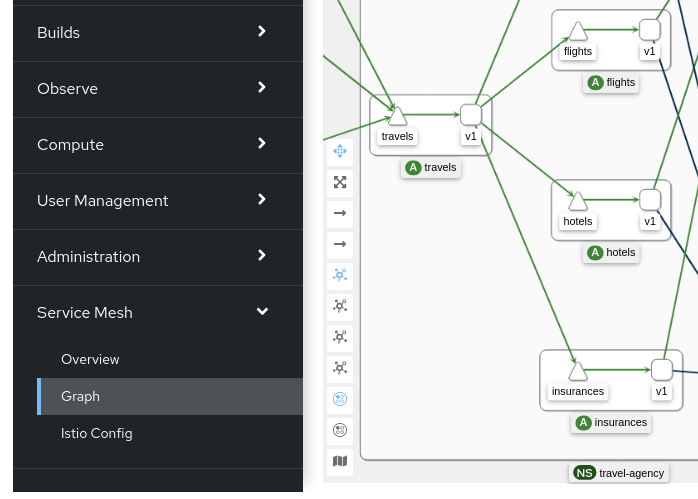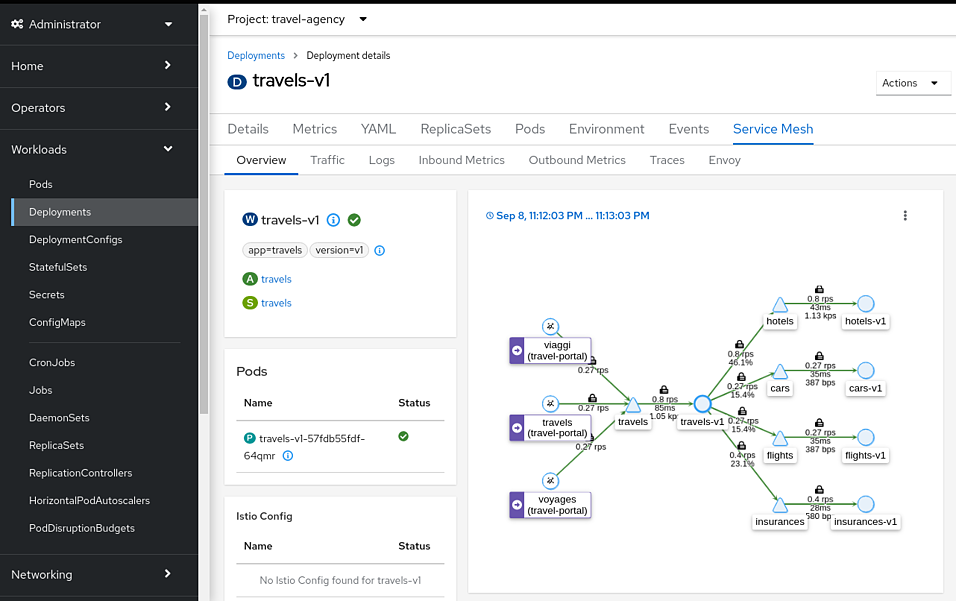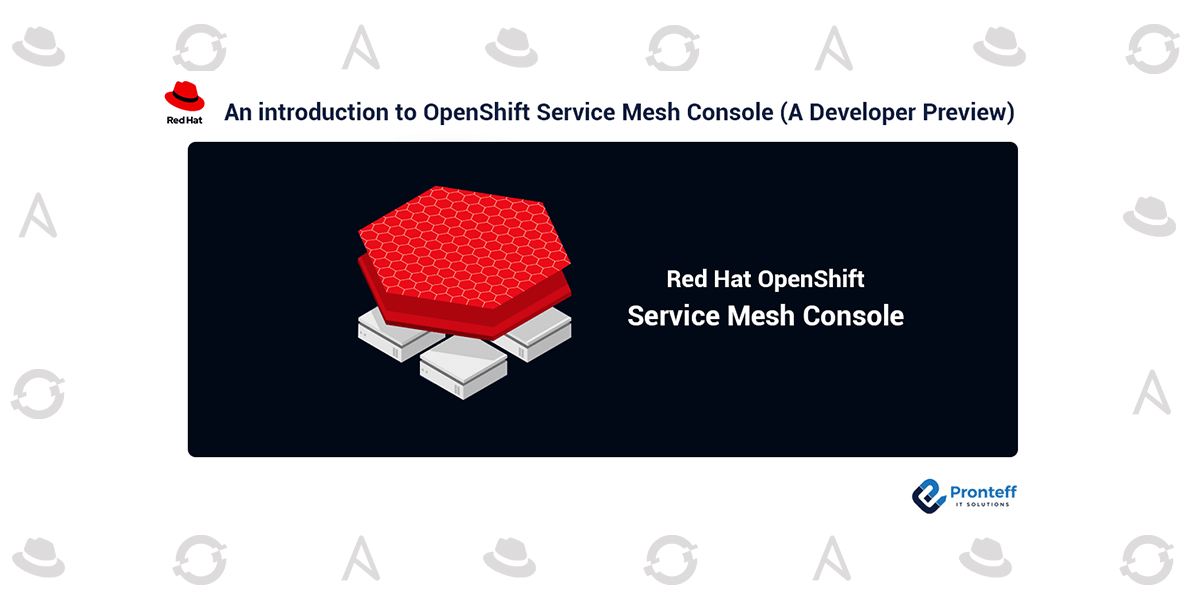An introduction to OpenShift Service Mesh Console (A Developer Preview)
You are probably already extremely familiar with its observability tool, Kiali, if you have developed and deployed apps using OpenShift Service Mesh (OSSM) or the open-source project Istio (which is the upstream project OSSM is based on). Kiali is a standalone program that uses its own web frontend to let you configure, visualize, validate, and troubleshoot your service mesh.
Users may now experience Kiali within an OpenShift environment more seamlessly thanks to the launch of the new OpenShift Service Mesh Console. An open source dynamic-plugin implementation called OpenShift Service Mesh Console incorporates the Kiali interface right into the OpenShift Console. Now that the Kiali functionalities are readily accessible within the OpenShift Console itself, you can navigate around your cluster and its mesh components without switching between the standalone Kiali UI and the OpenShift Console.
The OpenShift Console will give you immediate access to Kiali features listed under the “Service Mesh” choices via the left-hand navigation menu after the OpenShift Service Mesh Console is installed.

Additionally, “Service Mesh” tabs can be accessed from other OpenShift Console pages, such as the Workloads page:

You can rapidly install and utilize the OpenShift Service Mesh Console with the aid of both an Install Guide and a User Guide.
As a Developer Preview, the new OpenShift Service Mesh Console offers early access to upcoming product features, allowing users to test functionality and offer suggestions while the product is still being developed. Given that this is a new service, here are some things to think about:
- It is built using the brand-new OpenShift Console dynamic plugin-in framework, which is a limited-release Technology Preview feature. Therefore, it is cutting-edge. Welcome to the party!
- We are not yet prepared to offer official support for it, and Red Hat production service level agreements do not cover it because it is currently a Developer Preview (SLAs).
- It is not designed to be used in production environments, and Red Hat does not advise doing so. This is true of all Developer Preview versions.
The Kiali team is therefore encouraging the community to test out the new OpenShift Service Mesh Console and provide feedback in our issue tracker. We appreciate you contributing to the work to try to directly integrate Service Mesh observability features into the OpenShift Console.








